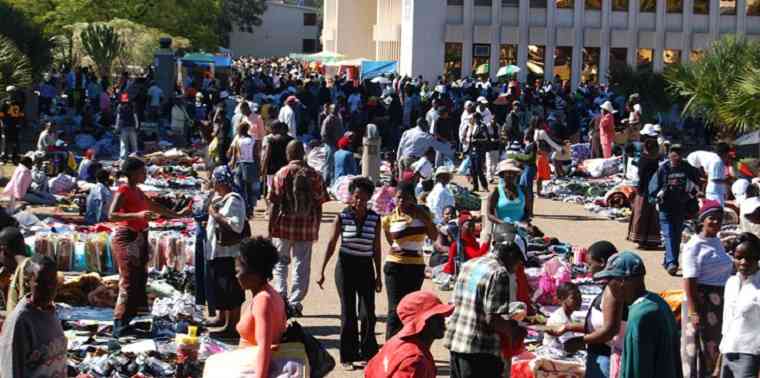
THE Zimbabwe National Chamber of Commerce (ZNCC) says the country’s informal economy is valued at US$42 billion amid concerns that the government is failing to tap into the sector through taxes.
ZNCC’s estimates are higher than those by the Reserve Bank of Zimbabwe’s 2022 FinScope Micro, small and medium enterprises (MSME) which said the informal sector was valued at US$8,6 billion.
The central bank estimated the informal sector’s annual turnover to be at US$14,2 billion.
Within the same sector, the central bank has estimated that about US$2,5 billion is circulating in that industry owing to the fact that most businesses are on a cash basis.
In its new 2023 ZNCC Annual State of the Industry and Commerce Survey, the chamber reported that the increase in the informalisation of the economy was forcing formal businesses to become informal.
“The informal sector is estimated to be valued at about US$42 billion, contributing about 64,2% to GDP (gross domestic product) at the purchasing power parity,” ZNCC said.
“As the economy gradually moves towards full dollarisation, the dominance of the US dollar cash economy and the underground economy is growing.
“Over-regulation and policy inconsistencies continue to push, even previously formal businesses into the informal sector while most emerging enterprises are taking the informal route.
- AfDB cuts Zim’s growth projections to 3.5%
- Russia-Ukraine war and the Zimbabwe daily bread
- AfDB cuts Zim’s growth projections to 3.5%
- Russia-Ukraine war and the Zimbabwe daily bread
Keep Reading
“The majority of the populace is employed in the informal sector, mostly women and youth.
“Some of the sector sub-sectors where informality is high include: (i) retail; (ii) distribution; (iii), foreign currency informal/parallel/black market and (iv) services where there are parallel structures running close to formal establishments.”
ZNCC said informality meant that there was lack of social protection, rights at work, and decent working conditions.
“For enterprises it means low productivity and lack of access to finance,” the report says.
To tax the informal sector, treasury has implored local authorities to impose fees and enforce regulation compliance from informal traders.
In the proposed 2024 budget, value added tax (VAT) registration requirements were reduced to an annual income of US$25 000, from US$40 000 with treasury mandating that businesses shall only conduct transactions with another if it has VAT licence.
Presenting the survey report last week, independent consultant Albert Makochekanwa said the formal sector was being negatively affected by the complicated tax regime, inconsistency in policy making and exchange rate instability, among other factors.
“We also found out that challenges like poor utility delivery, complicated tax regimes, limited credit, corruption, exchange rate fluctuations, unstable process and policy inconsistency are affecting the ease of doing business in the country,” Makochekanwa said.
He said the business sector experienced reduced capacity utilisation due to these challenges, uncertainty of the disputed elections and the use of the multi-currency regime.
“The capacity utilisation for all the 13 sectors that were interacted with in the survey, on an average decreased marginally from 63% in 2022 to 60,1% in the last quarter of 2023,” Makochekanwa said.
“The other reasons for the reduced capacity utilisation include corruption, cost of doing business, power outages, lack of adequate skills and lack of capital,”
The sectors include agriculture, hunting and fishing and forestry sector, wholesale and retail trade, repair of motor vehicles and motorcycles, mining, wholesale and retail, and education.






